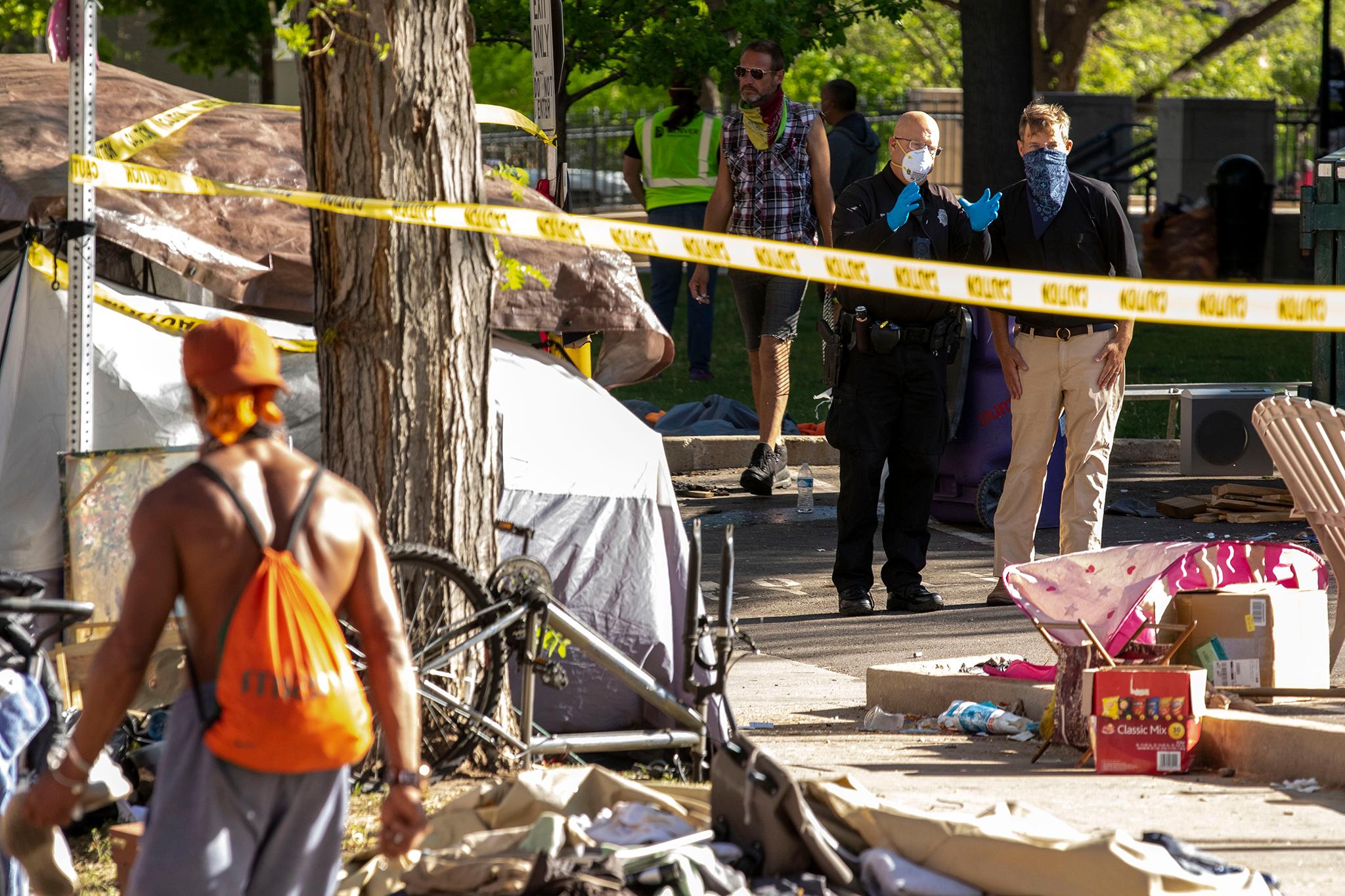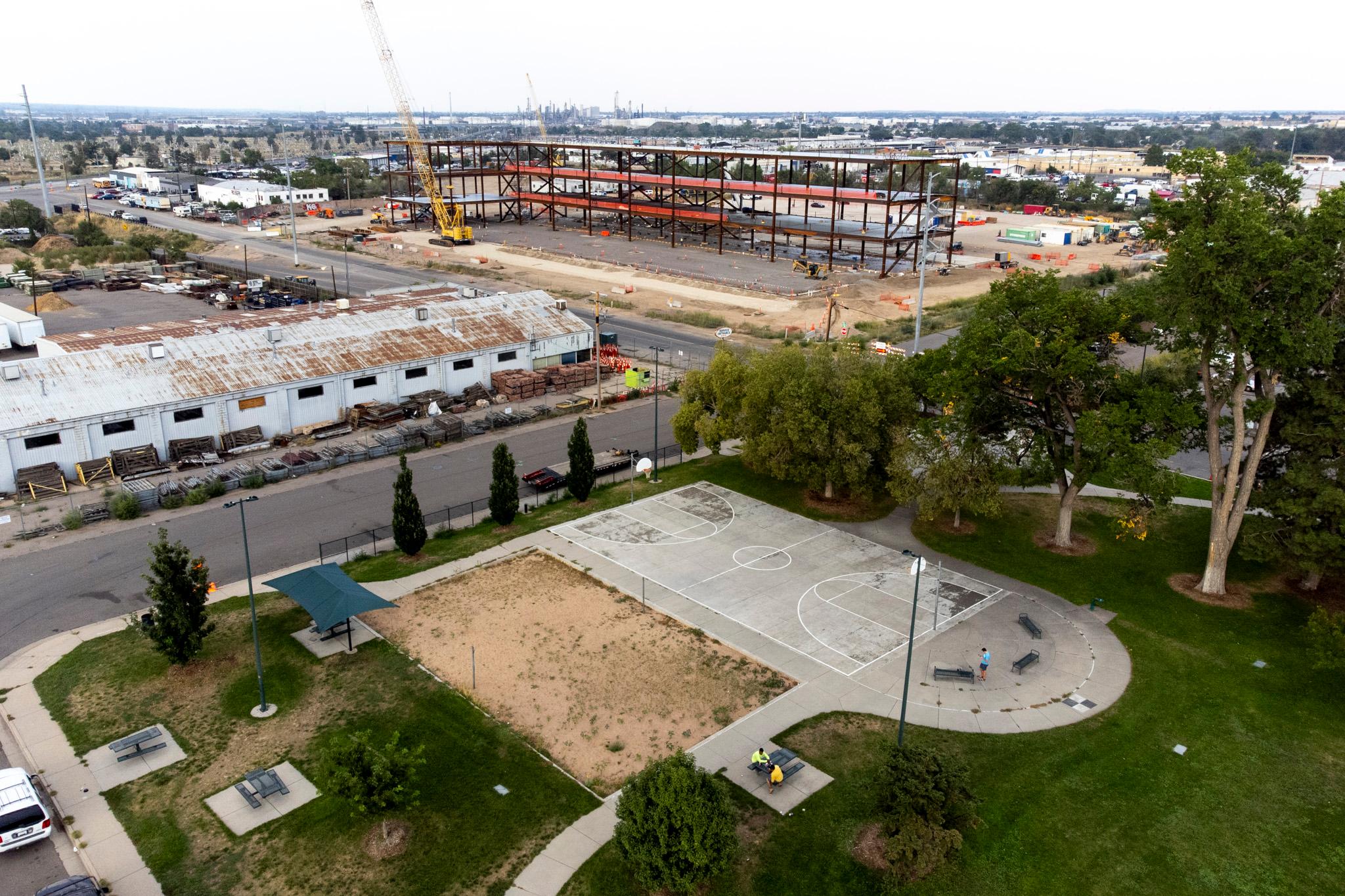Tents were coming down and fencing was going up around Saint John's Cathedral Wednesday as city workers carried out a cleanup.
City spokeswoman Nancy Kuhn said that following Denver's implementation of stay-at-home and then safer-at-home measures to control the spread of the novel coronavirus, people experiencing homelessness may return to areas such as the sidewalks outside Saint John's following cleanups prompted by health and safety concerns. But the fencing being erected by the cathedral at 1350 N. Washington Street in Capitol Hill sent a different message. And several people packing up tents, bedding, food and other supplies Wednesday said police officers had told them they could not come back.
A cleanup requires people experiencing homelessness to pack up, sometimes hastily, and find a new place to rest, if only for the hours it can take for trash to be collected, sidewalks to be swept and items to be moved away for storage. Advocates for people experiencing homelessness have protested cleanups amid the coronavirus outbreak, saying they could lead to vulnerable people ending up disconnected from support services.
"They just keep kicking us out of everywhere," said Kathleen Buechler, who has had no permanent home for five years, as she wheeled a cart of belongings away from the cathedral Wednesday morning.
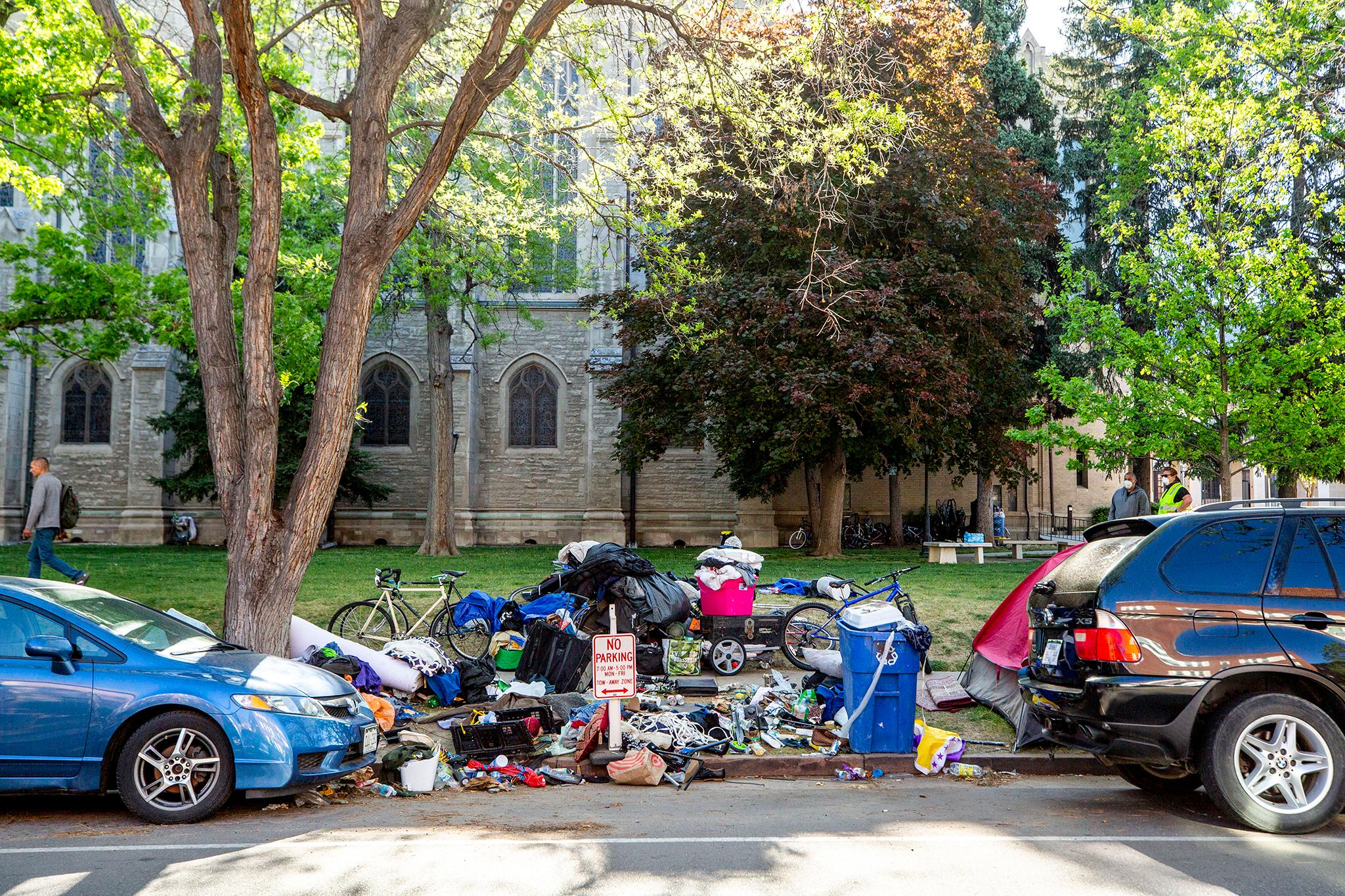
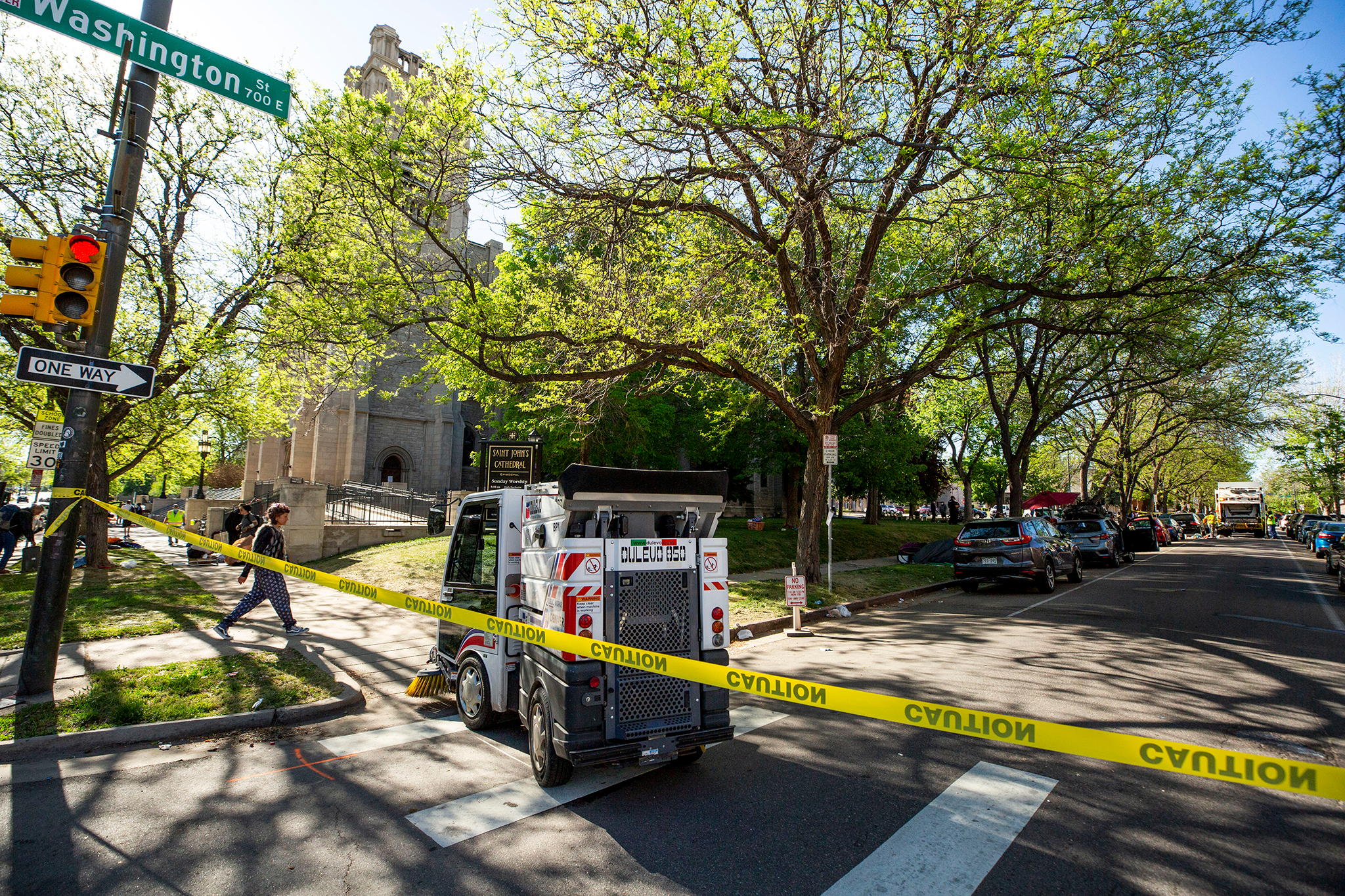
Buechler was headed west on 14th Avenue. She'd come to Capitol Hill following a cleanup in Five Points three weeks ago and was not sure where she would spend the night, she said, adding that police had told her she could not return to the cathedral.
Saint John's Dean Richard Lawson said he had been advised by both police and city workers that because of health concerns, the fencing was necessary around the tree lawns on the block where the cathedral, Lawson's office and the offices of the bishop of the Episcopal Church in Colorado are located. Lawson said the fencing will also make it easier to carry out long-planned improvements to sidewalks around the cathedral. He acknowledged that people experiencing homelessness would see the fencing as a sign they were not welcome.
"Everybody who's been camping here is God's child and is doing the best they can," Lawson said, his voice slightly muffled by a bandanna with a cross motif he was using as a social distancing mask. "They've found a home here and a refuge here."
Lawson said he supported calls by faith leaders and by organizations that provide services for people experiencing homelessness for sanctioned camping areas with regular hygiene, sanitation and health services. Mayor Michael Hancock has long opposed sanctioned camping, saying the city must offer more permanent shelter.
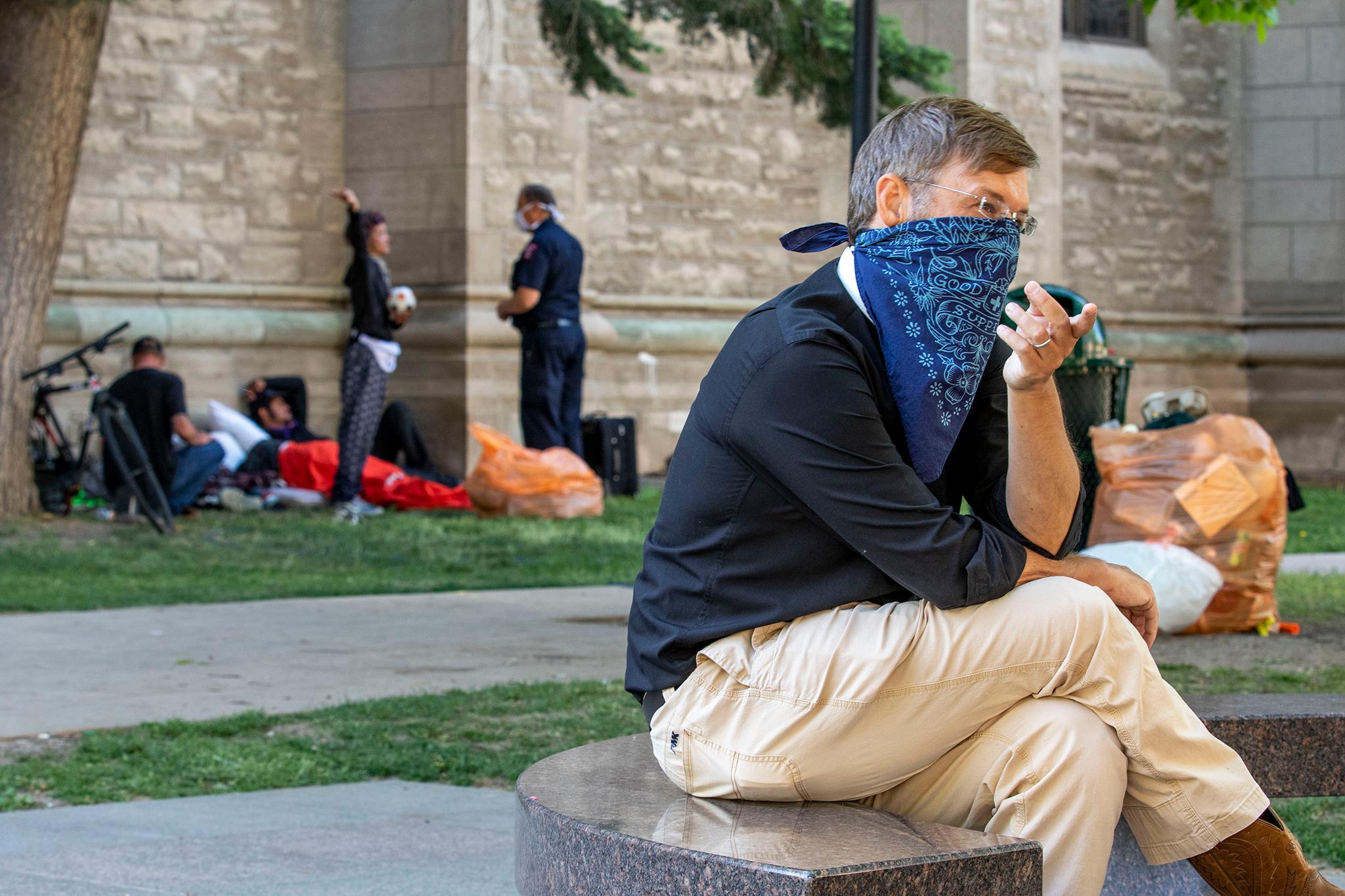
Fencing also went up around a tree lawn in Five Points following a city cleanup on Tuesday. Signs along the fencing said it was for reseeding.
Kuhn said businesses owners and others had been raising questions about their obligations concerning maintaining tree lawns and how to address "hazardous conditions" resulting from the encampments.
"The city has not provided or encouraged any recommended courses of action, but has explained what conduct might be permitted under city ordinances in response to specific questions posed," Kuhn wrote in an email. "Temporary fencing is one approach that can be used by property owners to provide an opportunity to reseed and let the grass grow."
Kuhn added the cleanup at the cathedral was expected to take a day, "and people can return to the area if they wish."
Lawson, the cathedral dean, said his concerns about ensuring the safety of the campers and others had grown following an increase in the number of campers at the end of March. He said one of the campers threatened volunteers who were maintaining a vegetable garden on the southern side of the cathedral grounds. The woman, brandishing a metal rod, seemed to believe the plot was hers, Lawson said, adding no one was hurt.
People living in nearby apartment buildings also had concerns. Johnnie Miles stood on the artificial grass outside his building west of the cathedral Wednesday, trading insults with some of the people breaking down camps across the street. Miles complained of fighting and drug-dealing among the campers.
"They've got an outside party going on over there," he said.
Laurie Brutshe, who joined Miles outside their building to watch the tents come down, complained about unsanitary conditions.
The campers "pee in a bucket and they throw it in the street," Brutshe said.
Neighbors have been asking for help, said Jenny Lang.
"We've been calling the city, the police, the mayor's office, 211, 311," Lang said. "We're fighting for our rights to live safely."
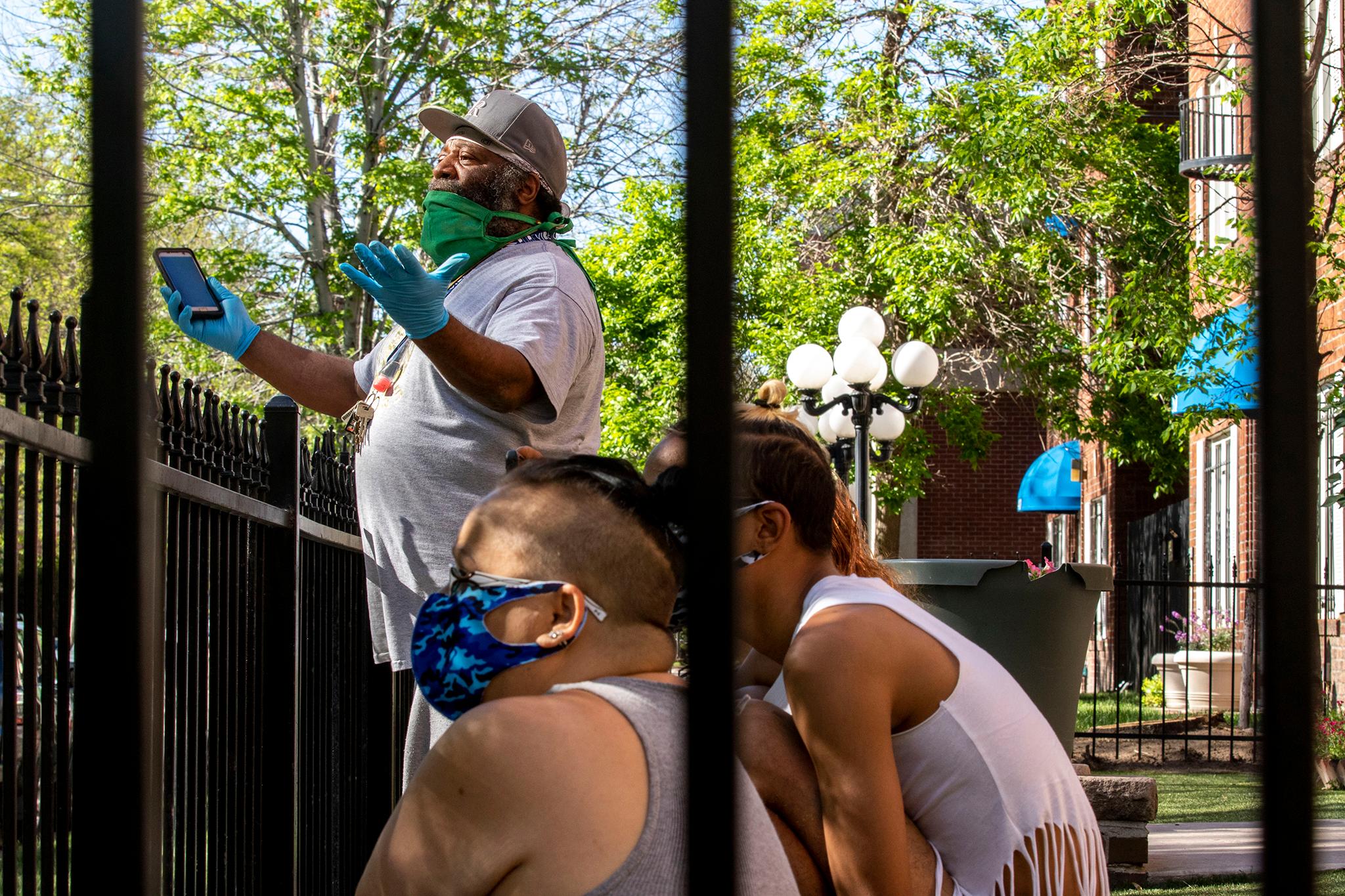
Nate Ragolia, who also lives nearby, said he had called city officials to express concerns about his health and the health of the campers. He said it was rare to see a camper wearing a face mask or maintaining social distancing.
"If we're bringing the reality of this to light instead of looking the other way or not looking, that's how we can start to make improvements that help anybody," Ragolia said. "I would hope that Denver could be a beacon of a new way of thinking about this. I think we should be bold and compassionate and figure out a way to not leave people behind."
Saint John's worked with the homelessness services nonprofit Saint Francis Center to develop an apartment building on what had been a cathedral parking lot. The 49-unit Saint Francis Apartments at Cathedral Square opened in 2018. Since then, Lawson and Saint John's parishioners have fostered ties with Saint Francis Apartments residents, who include people who have recently experienced homelessness.
Lawson said Saint Francis Center outreach workers have been regularly visiting the campers at the cathedral to offer water, counseling and, since the emergence of the coronavirus, face masks. He said the Saint Francis workers also have helped people move from the sidewalks into shelter.
Mary Harmon, who was among the campers outside the cathedral on Wednesday, said a case worker recently got her fiance into a hotel room. Harmon said she had been told she might also be able to go to a hotel.
Except for a stint in the Army, she has been homeless since she was a teen, the 46-year-old Harmon said. She prefers the streets to shelters, which she said are crowded, dirty and breeding grounds for disease. She said she has camped near the cathedral on and off for nine months, getting to know groundskeepers there. Harmon said she discards her trash in Saint John's dumpsters, but the ground around a tent she had fashioned from a tarpaulin was littered with cigarette butts and empty snack bags.
"I understand that there's a camping ban," Harmon said. "But you can't make the homeless not be able to camp. Where else are they going to go?"

